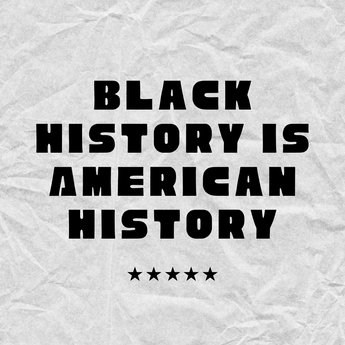 Photo from Canva Photo from Canva Today is Juneteenth, a holiday commemorating June 19, 1865, the day the last enslaved persons were officially liberated in Texas. This happened two and a half years after Lincoln issued the Emancipation Proclamation, and almost six months after the Senate passed the 13th Amendment which declared, “Neither slavery nor involuntary servitude, except as a punishment for crime whereof the party shall have been duly convicted, shall exist within the United States, or any place subject to their jurisdiction.” I’m not sure I’d ever read the text of the 13th Amendment before. It’s not the full-throated denunciation of slavery that I thought it was – you can see a straight line from the gaping loophole this amendment allows and the current problem we have with mass incarceration. In reading about Juneteenth this year, I was repeatedly struck by the fact that I don’t remember learning about this holiday when I was in school. Maybe it was in one of the side boxes in my textbook that seems designed for busy students to skip over as they race through their assigned reading. In talking to my mom, she also didn’t recall hearing about Juneteenth when she was in school. But I was caught off guard that my younger sister also did not remember learning about it – and her entire education took place in the 21st century. In a blog post on Education Week, Washington and Lee student, Briyana Mondesir explains, “A lot of the way that schools depict [B]lack history, our history, is: [w]e were slaves, then Martin Luther King happened, and then everything's fine.” That sounds like an oversimplification, but that’s not far off from my memory of learning about Black history in high school. History teacher, India Meissel goes even further: “It's not just that teachers don't discuss the day, and its significance, in class. Many don't know about Juneteenth themselves. Meissel “remembers leading summer history and social studies trainings for elementary school teachers who had never heard of the day.” So if Juneteenth was not a notable part of your education, as it wasn’t for me, we now have the opportunity to go back to school and try again. We get to dig into the reality that “emancipation wasn't a single point in time—it was a process,” as Meissel explains. Juneteenth is a cause for celebration, an independence day that included all Americans for the first time. And Juneteenth is a beginning, not an end. It’s heartening to see the attention this holiday is getting this year. At Collegewise, we are officially taking the day off from work, and as my colleague Arun said, “As you see fit, make it a wonderful and meaningful day!” In that spirit, here are some of the things I’ll be reading, watching, and listening to today:
0 Comments
Leave a Reply. |
What is the When I Was 17 Project?When I Was 17 is a blog series dedicated to collecting the varied stories of people's career paths, what they envisioned themselves doing when they were teenagers and how that evolved over the course of their lives. I started this project with the goal of illustrating that it's okay not to know exactly what you want to do when you're 17; many successful people didn't, and these are a few of their stories.
Archives
October 2020
|